January 2010 Summit
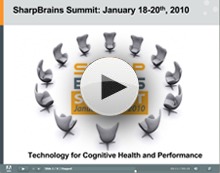 Are you interested in what over 40 leading scientists, clinicians, executives and technologists have to say about the latest Technology for Cognitive Health and Performance? Want to hear how they responded to more than 200 audience questions? You can now Order and Download the Full Transcripts of the January 2010, SharpBrains Summit HERE (300+ page PDF electronic document; $195).
Are you interested in what over 40 leading scientists, clinicians, executives and technologists have to say about the latest Technology for Cognitive Health and Performance? Want to hear how they responded to more than 200 audience questions? You can now Order and Download the Full Transcripts of the January 2010, SharpBrains Summit HERE (300+ page PDF electronic document; $195).
This is what some of the participants said:
— “Splendid line-up of speakers.” — Jake Dunagan, Research Director at the Institute For The Future, USA.
— “Universal kudos from our team. Agenda worked out extraordinarily well.” — Ken Kosik, Executive Director of CFIT, USA.
— “One of the best conferences I have ever attended in 4 decades of research & innovation life.” — Ron Baecker, Lab Director at University of Toronto, Canada.
— “Excellent content and outstanding administration.” — Danny Dankner, CEO Applied Cognitive Engineering, Israel.
— “An incredibly stimulating conference, with a perfect balance of science and application.” — David Tal, Owner, A.G.E. Matters Clinic, Canada.
Below are a few selected Transcript Excerpts from the first session “Cognition & Neuroplasticity: The New Health & Wellness Frontier”, which occupies Pages 1–28 of the Transcripts. Full transcripts include all talks and Q&A sessions over 326 pages. Libraries can contact us for special discounts.
—
Marian Diamond, UC-Berkeley:
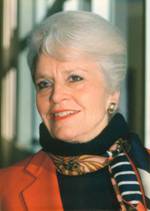 “I have chosen for my short introduction to our Summit meeting to review our research from 1960 to 2009 providing us with information to maintain a healthy brain…Number one, diet. Number two, exercise. Number three, challenge. Number four, newness. Number five, love.”
“I have chosen for my short introduction to our Summit meeting to review our research from 1960 to 2009 providing us with information to maintain a healthy brain…Number one, diet. Number two, exercise. Number three, challenge. Number four, newness. Number five, love.”
“Third, challenge. People frequently do the same level of crossword puzzles to stimulate their brains year after year. They do not challenge their brains with more difficult levels of puzzles. In our research, we showed that if we challenged the rats to reach their food cups by having to climb over many obstructions, their brains increased more than those of rats who could walk unhindered to their food cups. Challenge increased brain size.”
“Four. Newness. If we keep the same objects for the rats to explore in the enriched cages for several consecutive days, the cerebral cortex appeared not to show a response to the enriched condition. The brain had increased initially but with lack of continued stimulation, had lost the benefit of the input. We found it necessary to change the objects every few days to provide new stimuli to increase cortical dimensions. So newness is important to develop larger brains.”
To keep reading…
—
Tom Warden, Allstate:
 “… we see the opportunity that cognitive training provides as just the next evolution of things that we can advocate and get behind that ultimately make for a better driving experience, a safer driving experience for people. Not only for our insureds, but to help the roads be safer for everyone.”
“… we see the opportunity that cognitive training provides as just the next evolution of things that we can advocate and get behind that ultimately make for a better driving experience, a safer driving experience for people. Not only for our insureds, but to help the roads be safer for everyone.”
“Increasingly, obviously with the baby boom sort of age wave moving through its later years, the safety of senior drivers will become a larger and larger problem that society and companies that insure them will have to face…Then in doing that research we found Posit Science, who is leveraging the useful field of view technology developed by Karlene Ball…so what we did is to attempt to replicate the results that were observed in the laboratory environment where older drivers who have completed a good amount of training, 10 hours or more of training, had shown that the risk of crash could be reduced by up to about 50%.”
“…I believe 8% of the folks that we offered the software to took the software and installed it and about half of those folks actually trained a significant number of hours. And this was done through a direct mail campaign so we didn’t have a lot of integrated marketing of the campaign, so we were pretty happy with the numbers.”
To keep reading…
—
David Whitehouse, OptumHealth Behavioral Solutions:
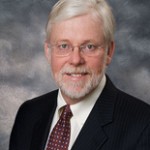 “Managed care has not always been on the forefront of innovation and it has been, for us, a challenge and an excitement to think about how best to incorporate the latest findings in neuroscience. If I was to give you the major areas that we think are important, one is the importance of neuroscience capabilitties to improve triage, the second is the importance that this has on increasing access to much better functional assessments and its relationship to safety. The third is in the area of clinical decision support and the fourth is in brain health.”
“Managed care has not always been on the forefront of innovation and it has been, for us, a challenge and an excitement to think about how best to incorporate the latest findings in neuroscience. If I was to give you the major areas that we think are important, one is the importance of neuroscience capabilitties to improve triage, the second is the importance that this has on increasing access to much better functional assessments and its relationship to safety. The third is in the area of clinical decision support and the fourth is in brain health.”
“First and foremost, why is it that in every other organ we have objective data of the organ itself doing its work under various loads to help us when we need to make decisions about its health and disease state and how best to support it and intervene.”
“Much of this has existed in neuroscience. Neuropsychological testing, genetic tests, functional MRI. But in day to day lives of people, these were not easily accessible and were often frequently expensive. The solution to this for us has been a developing relationship with a company in Australia called Brain Resource who have developed what is now the largest standardized integrated neuroscience database in the world on the human brain.”
“As we know, it is 17 years from the bench to clinical practice, and we also know that 50% of guidelines are obsolete within 6 years. For any clinician therefore to keep up to their knowledge base on the level of science that is now coming out and informing clinical decision making is almost impossible without computerized support.”
To keep reading…
—
William Reichman, Baycrest:
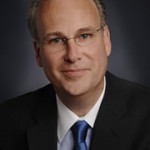 “…there’s an imperative now for those of us in the field of aging to focus more I believe on prevention, wellness, and certainly that science which will help us to best understand how to modify chronic illness risk factors throughout the entire practice of aging, throughout our entire life span.”
“…there’s an imperative now for those of us in the field of aging to focus more I believe on prevention, wellness, and certainly that science which will help us to best understand how to modify chronic illness risk factors throughout the entire practice of aging, throughout our entire life span.”
“This is certainly true not only for physical health but it is true for brain health. I often say, and this was alluded to in the earlier speakers that we must do for brain health in the 21st century what we largely accomplished in cardiovascular health in the past century…that includes an increased focus not only on tertiary prevention, but on primary and secondary prevention.”
“…at Baycrest in the last couple of years, we recognized that it’s now time to take the scientific insights out of the laboratory and to identify practical applications for this science…approximately a year and a half ago the Ontario government made a decision to invest $10 million in Canada’s first centre for brain fitness to be housed at Baycrest at the Rotman Research Institute.”
“Here in Canada I think that we’ve been able to make a compelling case maintaining good brain fitness needs to be a national priority for this country and we have been engaged in discussions with the government, both federally and provincially, that brain health programs really need to begin in childhood.”
To keep reading…
—
P Murali Doraiswamy, Duke University:
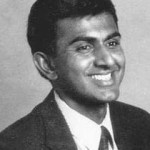 “Virtually in all of the diseases that I work with, whether it be depression, whether it be Alzheimer’s, whether it be ADHD, there are significant limitations to the current treatment modalities and people really want to be free of medication if possible so non-pharmacologic interventions such as exercise, cognitive training, dietary intervention. I think there’s just a huge need for those kinds of interventions.”
“Virtually in all of the diseases that I work with, whether it be depression, whether it be Alzheimer’s, whether it be ADHD, there are significant limitations to the current treatment modalities and people really want to be free of medication if possible so non-pharmacologic interventions such as exercise, cognitive training, dietary intervention. I think there’s just a huge need for those kinds of interventions.”
“… it’s really essential for the field before they really go to the next level to make sure that they occupy a space in people’s minds that associates them with credible science-based claims because you don’t want to walk into a grocery store or into a gas station and see a brain game claiming that they’re a neuroplasticity brain game or a bottle of water that’s claiming it’s a cognitive reserve enhancer because then I think you’re going to destroy the whole field key.”
“So I think it’s essential for academia, for industry, for think tanks, for even the federal government agencies such as perhaps England, US, Canada, to come together and form a set of guidelines that can really guide the proper development of a lot of these products and by products I’m talking about two types of products. One is cognitive screening instruments and the second is intervention products to either improve sort of normal functioning or to increase resilience to stress or three, to prevent disease.”
(answering to audience question, “when do you believe that cognitive screening may become a pretty routine part of standard medical care”) I think it’s long overdue…the brain is the most important organ.
To keep reading…
—
Interested in what over 40 leading scientists, clinicians, executives and technologists have to say about the latest Technology for Cognitive Health and Performance? Want to hear how they responded to more than 200 audience questions? You can now Order and Download the Full Transcripts of the January 18–20th, 2010, SharpBrains Summit HERE (300+ page PDF electronic document; $195).
You can learn more about the 15 sessions and the over 40 Speakers below. All talks and Q&A sessions are included in the Full Transcripts.
Agenda:
(Note: all times are US Pacific Time.)
Monday, January 18th, 2010 |
Tuesday, January 19th, 2010 |
|---|---|
| 8–8.15am: My Continued Love Affair with the Brain. Marian Diamond, Professor of Neuroscience and Anatomy, UC-Berkeley
8.15–9.15am: Cognition & Neuroplasticity: The New Health & Wellness Frontier
|
8–8.15am: Innovation, People and Technology. Chuck House, Executive Director, Stanford Media X
8.15–9.15am: Neurocognition & Medicine: Implications for Research, Diagnosis, Treatment
|
| 9.30–11am: Tools for Safer Driving: The Opportunity with Teenagers and Adults Safer driving can become the first mainstream application of cognitive training, given growing awareness of distracted driving, valuable cognitive research, product availability and channel interest. Driving schools in Europe and Canada, insurers and associations in the USA, are already leading the way.
|
9.30–11am: How Can Neuroscience Inform and Refine Mental Health Care Neurosychiatry and related clinical fields focus on the identification and treatment of mental dysfunction. Growing neuroscientific knowledge and methods suggest an alternative framework: measuring and helping maintain the brain functionality required to thrive in modern society. How can cognitive and behavioral neuroscience inform and refine mental health care?
|
| Noon‑1.30pm: Baby Boomers and Beyond: Maintaining Cognitive Vitality Aging baby boomers and a growing aspiration to “brain fitness” are reality today, together with a media controversy on whether “brain games” and “brain fitness software” work or are a waste of time and money. This panel will discuss what “work” means and doesn’t mean, and offer light into what consumers and institutions are buying ‑and why.
|
Noon‑1.30pm: Integrating Cognition with Home Health and Medical Home Models Emerging healthcare delivery models, such as home health and medical homes, bring new urgency to the need for personalized and well-integrated care processes that actively monitor and help address cognitive and emotional problems. Pioneers in computerized cognitive behavioral therapy, patient-centered care, and home health care will discuss opportunities and challenges.
|
| 1.45–3.15pm: Next Generation Cognitive & Emotional Health Assessments Scalable, automated applications can assess and monitor a variety of cognitive and emotional functions, helping refine medical diagnoses and direct treatments in a way that the Mini-Mental and similar traditional assessments can’t. This panel will discuss online assessments deployed by insurers, cognitive monitoring via game playing, and experimental virtual-reality approaches.
|
1.45–3.15pm: What’s Next: Entrepreneurial And Funding Perspectives Demography meets research meets technology: a recipe for innovation and entrepreneurship crossing traditional sector lines (neurotech, health IT, consumer internet, software). What are entrepreneurs trying, and learning? What are venture groups funding, and why?
|
| 3.30–4pm: The Future of Cognitive Health Tech — Intel’s Perspective Two researchers at Intel Digital Health will outline why and how Intel Corporation is supporting R&D initiatives such as the Technology Research for Independent Living (TRIL) Centre and ORCATECH to help develop home-based automated applications to assess, monitor and help maintain cognition among older adults. They will also share key lessons learned so far, and outline challenges and potential guidelines for the field at large based on ethnographic research and first-hand product development.
|
3.30–4pm: Future Standards and Channels for Neuroplasticity-based Interventions Traditionally, medicine focuses on invasive interventions (drugs, devices), while other sectors deal with non-invasive ones (exercise, learning, meditation, therapy and training). These boundaries are increasingly artificial, suggesting the need for new standards, assessments and channels to evolve and support meaningful innovation in years to come.
|
Expo Day (Wednesday, January 20th)
9am. Baycrest/ Cogniciti introduced the new Memory@Work workshop, designed to teach what memory is, how lifestyle factors such as distraction and stress can affect memory, and how to enhance memory performance at work with the use of enabling strategies.
10am. CogniFit demoed CogniFit Personal Coach and CogniFit Senior Driver, two online programs designed to assess and main cognitive functions for healthy living and safe driving, respectively.
11am. Posit Science demoed InSight, a software-based cognitive training package designed to sharpen brain’s visual system. This is the program being tested by Allstate for safer driving.
Noon. Happy Neuron introduced HAPPYneuron PRO, a new platform for professionals for the effective delivery and management of cognitive remediation and rehabilitation programs in a patient centric manner.
1pm. SharpBrains helped navigate this growing field by discussing The State of the Brain Fitness Software 2009 report and The SharpBrains Guide to Brain Fitness consumer guide, and summarizing key Summit take-aways.
—
Speaker Bios:
Monday, January 18th, 2010 |
Tuesday, January 19th, 2010 |
|---|---|
 Marian C. Diamond, Ph.D., is Professor of Neuroscience and Anatomy at UC-Berkeley and one of the world’s foremost researchers on neuroplasticity and enrichment since the 1960s. She is author of more than 150 scientific articles and 5 books, including Enriching Heredity (Free Press/Simon and Schuster, 1988) and The Magic Trees of the Mind (Plume, 1999). In particular, she is interested in studying the effects of the external environment, aging, and immune responses on the cerebral neocortex. Marian C. Diamond, Ph.D., is Professor of Neuroscience and Anatomy at UC-Berkeley and one of the world’s foremost researchers on neuroplasticity and enrichment since the 1960s. She is author of more than 150 scientific articles and 5 books, including Enriching Heredity (Free Press/Simon and Schuster, 1988) and The Magic Trees of the Mind (Plume, 1999). In particular, she is interested in studying the effects of the external environment, aging, and immune responses on the cerebral neocortex.
|
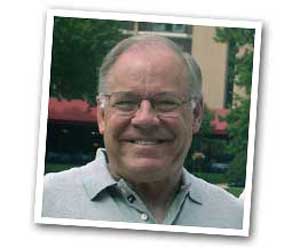 Charles (Chuck) House is the executive director of Media X, Stanford University’s Industry Affiliate research program on media and technology, and a senior research scholar in the Human Sciences and Technology Advanced Research division at Stanford. Previously, he was the director of Societal Impact of Technology for Intel Corporation, and the first Director of Intel’s Virtual Research Collaboratory. He recently co-authored The HP Phenomenon: Innovation and Business Transformation (Stanford University Press, October 2009). Charles (Chuck) House is the executive director of Media X, Stanford University’s Industry Affiliate research program on media and technology, and a senior research scholar in the Human Sciences and Technology Advanced Research division at Stanford. Previously, he was the director of Societal Impact of Technology for Intel Corporation, and the first Director of Intel’s Virtual Research Collaboratory. He recently co-authored The HP Phenomenon: Innovation and Business Transformation (Stanford University Press, October 2009).
Richard Levinson, President, Attention Control Systems. In the early 1990s, as a robotics researcher at NASA-Ames Research Center in Mountain View, California, Mr. Levinson began studying the neuropsychology of human planning in order to increase autonomy for NASA robots. In 1995, he proposed a computer model of human frontal lobe function in an article published in the Annals of the New York Academy of Sciences. That computer model of executive functions led to the development of PEAT, a powerful cuing and scheduling treatment currently available to people with a wide range of cognitive and attention disorders. Levinson has publications related to PEAT in both computer science and neuropsychology journals, and has pioneered an interdisciplinary approach to cognitive rehabilitation that has drawn widespread attention.
|
—
Sponsors
We want to thank the Sponsors who made the SharpBrains Summit possible.
Baycrest, located in Toronto, is one of the world’s premier academic health sciences centers focused on aging. Through its strengths in research and education, Baycrest is using the power of inquiry and discovery to improve the health of tomorrow’s elderly while at the same time care for and enhance the quality of life of the elderly today. Baycrest runs a Geriatric Health Care System, a Research Centre for Aging and the Brain, and a Centre for Education on Aging. Fully affiliated with the University of Toronto, Baycrest is playing a unique and important role in training and enlightening future professionals who will have the responsibility of caring for our aging population. We also have linkages, partnerships and appointments at other academic centres across the country, continent and beyond.
The Institute For the Future is an independent, nonprofit strategic research group with more than 40 years of forecasting experience. The core of our work is identifying emerging trends and discontinuities that will transform global society and the global marketplace. We provide our members with insights into business strategy, design process, innovation, and social dilemmas. Our research spans a broad territory of deeply transformative trends, from health and health care to technology, the workplace, and human identity. The Institute for the Future is located in Palo Alto, California.
The EDGE Innovation Network was formed in December 2006 as a collaborative, open-environment initiative enabling members and supporters to work together to enhance the delivery cycle of technology and innovation to the warfighter. Over the past 18 months, EDGE membership has grown from 15 to 58 members representing U.S. and international military and government agencies, high-tech industries and five U.S.-based universities. Sponsored by General Dynamics C4 Systems, the EDGE provides subject matter expertise, advanced product portfolios and equipment, facilities and laboratories for developing and testing technologies, products and systems at faster cycle times than are currently possible on funded programs while enhancing the effectiveness, agility and survivability of users worldwide.
CogniFit brain fitness programs provide an initial baseline assessment of the cognitive abilities that are most affected by aging, before creating personalized training programs. No two training programs are the same. Based on more than 30 years of neuro-scientific research, CogniFit’s scientifically validated, patented brain fitness programs are personalized to each user’s skills and needs to help enhance their cognitive performance and health.
Posit Science is the leader in delivering clinically proven brain fitness software that brings brain science from the lab to the people, improving everyday lives. The company combines breakthrough research and a focus on great customer experiences to create products that are engaging and help users think faster, focus better and remember more. Staff neuroscientists collaborate with more than 50 scientists from leading research institutions such as Mayo Clinic and Johns Hopkins as well as engineers and product marketers to design, build and test our computer-based programs. Posit Science products are available online and through health, long-term care and auto insurers. Posit Science is also featured in the PBS documentary “The Brain Fitness Program.”
HAPPYneuron is a pioneer in brain training and rehabilitation, providing scientifically rigorous and evidence based cognitive stimulation programs to individuals, clinician and researchers worldwide to promote healthy brain aging and the treatment of a variety of cognitive impairment conditions. In doing so, the company strives to realize the vision of improved brain function, health and vitality, and to make a positive impact in the lives of program participants. HAPPYneuron Inc. is a majority owned subsidiary of Scientific Brain Training (NYSE Euronext: MLSBT).
A.G.E. Matters is a multidisciplinary Adult and Geriatric Evaluation Clinic in Toronto, Ontario, Canada, with a mission to provide swift and continually upgraded access to community-based, comprehensive assessment of cognition, function and behavior; personalized programs of prevention, counseling, education and treatment; and nutritional and lifestyle recommendations, cognitive training programs, and medications of proven benefit.
The Arrowsmith Program is a comprehensive suite of cognitive programs for students with learning disabilities that targets 19 areas of the brain that are most commonly involved in learning. It integrates two lines of neuroscience research, that of Russian neuropsychologist, A.R. Luria and the American psychologist, Mark Rosenzweig, into a methodology with a multitude of practical applications for addressing learning disabilities. The Arrowsmith Program identifies and strengthens the weak cognitive areas that affect learning and each student works on cognitive programs that are individually designed for his or her areas of learning difficulty. The Arrowsmith Program was developed at Arrowsmith School in Toronto where it has been offered since 1979 and is available in public and private schools in Canada and the U.S.
—
9am. Baycrest/ Cogniciti will introduce the new Memory@Work workshop, designed to teach what memory is, how lifestyle factors such as distraction and stress can affect memory, and how to enhance memory performance at work with the use of enabling strategies.
10am. CogniFit will demo CogniFit Personal Coach and CogniFit Senior Driver, two online programs designed to assess and main cognitive functions for healthy living and safe driving, respectively.
11am. Posit Science will demo InSight, a software-based cognitive training package designed to sharpen brain’s visual system. This is the program being tested by Allstate for safer driving.
Noon. Happy Neuron will introduce HAPPYneuron PRO, a new platform for professionals for the effective delivery and management of cognitive remediation and rehabilitation programs in a patient centric manner.
1pm. SharpBrains will help navigate this growing field by discussing The State of the Brain Fitness Software 2009 report and The SharpBrains Guide to Brain Fitness consumer guide, and summarizing key Summit take-aways.
Partners
The following Partners made the SharpBrains Summit possible:
Media X at Stanford University is a collaboration of Stanford and industry that brings together Stanford’s leading interactive technology research with companies committed to technical advancement and innovation. Media X is affiliated with the H‑STAR Institute (Human-Sciences and Technologies Advanced Research Institute).
The Neurotechnology Industry Organization (NIO) is a non-profit trade association that represents companies involved in neuroscience, academic neuroscience research centers, and brain-illness advocacy groups across the United States and throughout the world.
MaRS Discovery District is a large scale, mission driven innovation centre located in Toronto and networked across Ontario, focused on building Canada’s next generation of technology companies. MaRS works closely with entrepreneurs to grow and scale their ventures into global market leaders in life sciences and health care, information, communications and digital media technologies, cleantech and advanced materials, as well as innovative social purpose business.
Games for Health by the Serious Games Initiative develops a community and best practices platform for the numerous games being built for health care applications.
The Center for Technology and Aging is a non-profit organization with a purpose to advance the diffusion of technologies that help older adults lead healthier lives and maintain independence. It was founded in 2009 with a grant from The SCAN Foundation and is affiliated with the Public Health Institute.
The Brain Injury Association of America (BIAA), founded in 1980, is the leading national organization serving and representing individuals, families and professionals who are touched by a life-altering, often devastating, traumatic brain injury (TBI). Together with its network of more than 40 chartered state affiliates, as well as hundreds of local chapters and support groups across the country, the BIAA provides information, education and support to assist the 3.17 million Americans currently living with traumatic brain injury and their families.
The USC Davis School of Gerontology has consistently pioneered innovative educational programs including the world’s first Ph.D. in Gerontology, the first joint Master’s degree in Gerontology and Business Administration, and the first undergraduate Health Science Track in Gerontology. Research in molecular biology, neuroscience, demography, psychology, sociology and public policy is conducted under the auspices of the Ethel Percy Andrus Gerontology Center, founded in 1964.
The Alzheimer’s Drug Discovery Foundation was established in 2004 as a public charity to support the advancement of drugs to prevent, treat, and cure Alzheimer’s disease, related dementias, and cognitive aging. Our strategy of venture philanthropy is based on the idea that our research grant recipients are engaged in projects that are potentially viable in the marketplace with a possible return on investment.
The International Council on Active Aging® (ICAA) was founded in the belief that unifying the efforts of the organizations focused on older adults benefits both the people they reach and the organizations themselves. Today, the vision is shared by over 8,000 organizations connected to the ICAA network.
The UC-Santa Barbara Neuroscience Research Institute has a mission to promote and facilitate interdisciplinary neuroscience research. Work in the institute integrates the tools and strategies of modern molecular biology, genetics, cell biology, developmental biology, biopsychology, biochemistry, physiology, biophysics and bioengineering.
The Alzheimer’s Research and Prevention Foundation (ARPF), established in 1993, is dedicated to reducing the incidence of Alzheimer’s disease by conducting clinical research and providing educational outreach. Our mission is to make available information, from conventional and complementary medicine, that will empower people to build healthy brains.
OLLI @ Berkeley is one of the 121 Osher Lifelong Learning Institutes on university and college campuses in 48 states (plus the District of Columbia) supported by the Bernard Osher Foundation. OLLI @ Berkeley provides older adults an intellectual, cultural and creative connection to Berkeley as well as a place for Berkeley’s distinguished faculty and others to share their research and interests in an interdisciplinary exchange of ideas.
The Knowledge Media Design Institute (KMDI) is a leader in interdisciplinary research and teaching at the University of Toronto. Our work spans the scientific study of the ways in which media and media technologies shape, and are shaped by, human activity, and the practical work of founding an interdisciplinary nexus for the design of such media. Adopting a human-centred and participatory approach to design, our goal is to enhance human skill rather than diminish it, and to encourage creativity and innovation.

 Alvaro Fernandez, CEO, SharpBrains. Alvaro Fernandez is SharpBrains’ co-founder and Chief Executive Officer. He has been quoted by The New York Times, The Wall Street Journal, CNN, and others. Alvaro is a member of the Global Agenda Councils initiative run by the World Economic Forum, and recently co-authored The SharpBrains Guide to Brain Fitness. He
Alvaro Fernandez, CEO, SharpBrains. Alvaro Fernandez is SharpBrains’ co-founder and Chief Executive Officer. He has been quoted by The New York Times, The Wall Street Journal, CNN, and others. Alvaro is a member of the Global Agenda Councils initiative run by the World Economic Forum, and recently co-authored The SharpBrains Guide to Brain Fitness. He  Thomas M. Warden is Assistant Vice President and Leader of Allstate’s Research and Planning Center (ARPC). He helps sets ARPC’s research agenda and manage its execution by 60-member ARPC staff, leading the development of significant innovations that contribute to Allstate’s profitable growth. He is a Chartered Financial Analyst and has an M.B.A. from Harvard University.
Thomas M. Warden is Assistant Vice President and Leader of Allstate’s Research and Planning Center (ARPC). He helps sets ARPC’s research agenda and manage its execution by 60-member ARPC staff, leading the development of significant innovations that contribute to Allstate’s profitable growth. He is a Chartered Financial Analyst and has an M.B.A. from Harvard University. David Whitehouse, Chief Medical Officer, OptumHealth Behavioral Solutions. Dr. Whitehouse serves as OptumHealth Behavioral Solutions’ clinical lead as well as the company’s product strategist for medical/behavioral/pharmacy integration and future innovation. His distinguished career also includes positions as assistant clinical professor of psychiatry at both Dartmouth Medical School and Yale University School of Medicine, chief of psychiatry at St. Mary’s Hospital in Connecticut, and chief executive officer of Charles River Hospital in Massachusetts. Dr. Whitehouse holds master’s degrees from both Harvard University and Cambridge University, an M.B.A. from the University of Connecticut, an M.D. from Dartmouth Medical School, and a doctorate in theology from Harvard University.
David Whitehouse, Chief Medical Officer, OptumHealth Behavioral Solutions. Dr. Whitehouse serves as OptumHealth Behavioral Solutions’ clinical lead as well as the company’s product strategist for medical/behavioral/pharmacy integration and future innovation. His distinguished career also includes positions as assistant clinical professor of psychiatry at both Dartmouth Medical School and Yale University School of Medicine, chief of psychiatry at St. Mary’s Hospital in Connecticut, and chief executive officer of Charles River Hospital in Massachusetts. Dr. Whitehouse holds master’s degrees from both Harvard University and Cambridge University, an M.B.A. from the University of Connecticut, an M.D. from Dartmouth Medical School, and a doctorate in theology from Harvard University. William Reichman, President, Baycrest. Dr. William E. Reichman is President and Chief Executive Officer of Baycrest, one of the world’s premier academic health sciences centres focused on aging and brain function. Dr. Reichman, an internationally-known expert in geriatric mental health and dementia is also Professor of Psychiatry on the Faculty of Medicine at the University of Toronto. He is a noted authority on the delivery of mental health and dementia services in nursing home settings. His previous academic activities have focused on the pharmacological treatment of Alzheimer’s disease and its associated apathy and negative symptoms. Dr. Reichman is a former President of the American Association for Geriatric Psychiatry and the Geriatric Mental Health Foundation.
William Reichman, President, Baycrest. Dr. William E. Reichman is President and Chief Executive Officer of Baycrest, one of the world’s premier academic health sciences centres focused on aging and brain function. Dr. Reichman, an internationally-known expert in geriatric mental health and dementia is also Professor of Psychiatry on the Faculty of Medicine at the University of Toronto. He is a noted authority on the delivery of mental health and dementia services in nursing home settings. His previous academic activities have focused on the pharmacological treatment of Alzheimer’s disease and its associated apathy and negative symptoms. Dr. Reichman is a former President of the American Association for Geriatric Psychiatry and the Geriatric Mental Health Foundation. P Murali Doraiswamy, Biological Psychiatry Division Head, Duke University. Dr. Doraiswamy is a renowned expert on brain health, head of Duke University’s Biological Psychiatry division and a Senior Fellow at Duke’s Center for the Study of Aging. The author of more than two hundred scientific articles, Dr. Doraiswamy has served as an adviser to the Food and Drug Administration, the American Federation for Aging Research, the National Institutes of Aging, and the World Health Organization, as well as leading Alzheimer’s medical journals and advocacy groups.
P Murali Doraiswamy, Biological Psychiatry Division Head, Duke University. Dr. Doraiswamy is a renowned expert on brain health, head of Duke University’s Biological Psychiatry division and a Senior Fellow at Duke’s Center for the Study of Aging. The author of more than two hundred scientific articles, Dr. Doraiswamy has served as an adviser to the Food and Drug Administration, the American Federation for Aging Research, the National Institutes of Aging, and the World Health Organization, as well as leading Alzheimer’s medical journals and advocacy groups. Steven Aldrich, CEO, Posit Science. Steven Aldrich is President and CEO of Posit Science, joining the company from Intuit where he created significant growth over 13 years in many roles. Most recently he was VP of Strategy and Innovation of the small business division where he accelerated growth by solving important customer problems through partnerships and acquisitions. He guided the QuickBooks Industry Solutions and QuickBooks Point of Sale teams to several successive years of significant employee engagement increases, customer experience improvements, and revenue growth. Steven was President of Quicken Insurance, a business he co-founded and sold to Intuit. He has worked in the investment banking division of Alex. Brown
Steven Aldrich, CEO, Posit Science. Steven Aldrich is President and CEO of Posit Science, joining the company from Intuit where he created significant growth over 13 years in many roles. Most recently he was VP of Strategy and Innovation of the small business division where he accelerated growth by solving important customer problems through partnerships and acquisitions. He guided the QuickBooks Industry Solutions and QuickBooks Point of Sale teams to several successive years of significant employee engagement increases, customer experience improvements, and revenue growth. Steven was President of Quicken Insurance, a business he co-founded and sold to Intuit. He has worked in the investment banking division of Alex. Brown 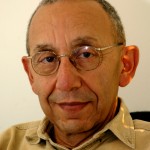 Shlomo Breznitz, President, CogniFit. Renowned cognitive psychologist, Professor Shlomo Breznitz has been engaged as visiting professor by numerous leading institutions including University of California at Berkeley, Stanford University, London School of Economics, and the US Department of Health and Human Services’ National Institutes of Health. Author of seven books and many scientific articles, Professor Breznitz is founding director of the Center for the Study of Psychological Stress at the University of Haifa, where he also served as Lady Davis Professor of Psychology, Rector, and University President. His acclaimed DriveFit™ training program, which was the first CogniFit commercial product, received the UK Prince Michael Road Safety Award.
Shlomo Breznitz, President, CogniFit. Renowned cognitive psychologist, Professor Shlomo Breznitz has been engaged as visiting professor by numerous leading institutions including University of California at Berkeley, Stanford University, London School of Economics, and the US Department of Health and Human Services’ National Institutes of Health. Author of seven books and many scientific articles, Professor Breznitz is founding director of the Center for the Study of Psychological Stress at the University of Haifa, where he also served as Lady Davis Professor of Psychology, Rector, and University President. His acclaimed DriveFit™ training program, which was the first CogniFit commercial product, received the UK Prince Michael Road Safety Award. Jerri Edwards, Associate Professor at the School of Aging Studies University of South Florida. Dr. Edwards’ research is aimed toward discovering how cognitive abilities can be maintained and even enhanced with advancing age. Ultimately, the goals of Dr. Edwards’ research are to extend the mobility and independence of older adults thereby improving their quality of life. She is particularly interested in how cognitive interventions may help older adults to avoid or at least delay functional difficulties and thereby maintain independence. Much of her work has focused upon the functional ability of driving including assessing driving fitness among older adults and remediation of cognitive decline that results in driving difficulties.
Jerri Edwards, Associate Professor at the School of Aging Studies University of South Florida. Dr. Edwards’ research is aimed toward discovering how cognitive abilities can be maintained and even enhanced with advancing age. Ultimately, the goals of Dr. Edwards’ research are to extend the mobility and independence of older adults thereby improving their quality of life. She is particularly interested in how cognitive interventions may help older adults to avoid or at least delay functional difficulties and thereby maintain independence. Much of her work has focused upon the functional ability of driving including assessing driving fitness among older adults and remediation of cognitive decline that results in driving difficulties.![Peter_Portraits_019[1] Peter_Portraits_019[1]](https://sharpbrains.com/wp-content/uploads/2009/10/Peter_Portraits_01911-150x150.jpg) Peter Christianson, President of Young Drivers of Canada. Peter joined Young Drivers as a YD franchise owner in Hamilton in 1975, becoming the Director of Centre Operations in 1979 and YD President in 1984. Young Drivers of Canada today is Canada’s largest driver training organization, having grown to over 140 classrooms nationally and taught over one million novice drivers. Peter has managed YD curriculum development for the past 30 years and in 2003 he acquired the Canadian rights for ‘CogniFit’ driving programs that focus on improving the cognitive skills required to drive safely.
Peter Christianson, President of Young Drivers of Canada. Peter joined Young Drivers as a YD franchise owner in Hamilton in 1975, becoming the Director of Centre Operations in 1979 and YD President in 1984. Young Drivers of Canada today is Canada’s largest driver training organization, having grown to over 140 classrooms nationally and taught over one million novice drivers. Peter has managed YD curriculum development for the past 30 years and in 2003 he acquired the Canadian rights for ‘CogniFit’ driving programs that focus on improving the cognitive skills required to drive safely. Kunal Sarkar, CEO, Lumos Labs. Kunal is a founding member of Lumos Labs and leads the operations and marketing team. Previously he was a Vice President at private equity fund McCown De Leeuw and Co.(MDC). At MDC Kunal was integrally involved in the strategy, operations and the financial recapitalization of a number of portfolio companies including serving on the board of On Stage Entertainment and USBuild, and the IPO of StoneMor (STON). Prior to MDC, he worked in the Strategic Planning and Development group at the Walt Disney Company. Kunal graduated magna cum laude from Princeton University with a B.A. in Economics with a minor in Finance.
Kunal Sarkar, CEO, Lumos Labs. Kunal is a founding member of Lumos Labs and leads the operations and marketing team. Previously he was a Vice President at private equity fund McCown De Leeuw and Co.(MDC). At MDC Kunal was integrally involved in the strategy, operations and the financial recapitalization of a number of portfolio companies including serving on the board of On Stage Entertainment and USBuild, and the IPO of StoneMor (STON). Prior to MDC, he worked in the Strategic Planning and Development group at the Walt Disney Company. Kunal graduated magna cum laude from Princeton University with a B.A. in Economics with a minor in Finance. Elizabeth Zelinski, Professor at USC Davis School of Gerontology. Elizabeth Zelinski, Ph.D., is a Professor of Gerontology and Psychology at the Leonard Davis School of Gerontology. Dr. Zelinski has joint appointments in the Psychology Department, Neurosciences and the Study of Women and Men in Society (SWMS) Programs. Dr. Zelinski graduated summa cum laude from Pace University and received her graduate degrees in psychology, with a specialization in aging, from the University of Southern California. Dr. Zelinski is the principal investigator of the Long Beach Longitudinal Study.
Elizabeth Zelinski, Professor at USC Davis School of Gerontology. Elizabeth Zelinski, Ph.D., is a Professor of Gerontology and Psychology at the Leonard Davis School of Gerontology. Dr. Zelinski has joint appointments in the Psychology Department, Neurosciences and the Study of Women and Men in Society (SWMS) Programs. Dr. Zelinski graduated summa cum laude from Pace University and received her graduate degrees in psychology, with a specialization in aging, from the University of Southern California. Dr. Zelinski is the principal investigator of the Long Beach Longitudinal Study.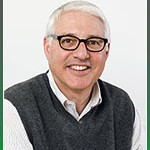 Dan Michel, CEO, Dakim. Dan spent more than 30 years helping some of America’s most successful companies market and advertise their brands. Over the last twenty years, he was Chief Operating Officer of BBDO Worldwide/Los Angeles, President of Marketing of Columbia Pictures, and President and Co-Creative Director of his own creative advertising agency, Michel/Russo, Inc. Dan’s father was diagnosed with Alzheimer’s Disease in 1993. Based upon learning about the disease, and having gained firsthand experience participating in activities with his father, he recognized the therapeutic and emotional value of cognitively stimulating activities, and the pressing need for more effective means of providing this line of therapy for sufferers of Alzheimer’s Disease and related dementia. Dan earned a B.A. from Claremont Men’s College (now Claremont McKenna College) and an M.S. from Northwestern University.
Dan Michel, CEO, Dakim. Dan spent more than 30 years helping some of America’s most successful companies market and advertise their brands. Over the last twenty years, he was Chief Operating Officer of BBDO Worldwide/Los Angeles, President of Marketing of Columbia Pictures, and President and Co-Creative Director of his own creative advertising agency, Michel/Russo, Inc. Dan’s father was diagnosed with Alzheimer’s Disease in 1993. Based upon learning about the disease, and having gained firsthand experience participating in activities with his father, he recognized the therapeutic and emotional value of cognitively stimulating activities, and the pressing need for more effective means of providing this line of therapy for sufferers of Alzheimer’s Disease and related dementia. Dan earned a B.A. from Claremont Men’s College (now Claremont McKenna College) and an M.S. from Northwestern University. Elkhonon Goldberg, Chief Scientific Advisor, SharpBrains. Dr. Goldberg is an author, scientist, educator and clinician, internationally renowned for his clinical work, research, writings and teaching in neuropsychology and cognitive neuroscience. He is a Clinical Professor of Neurology at New York University School of Medicine, and Diplomate of The American Board of Professional Psychology in Clinical Neuropsychology. A student and close associate of the great neuropsychologist Alexander Luria, Dr. Goldberg has continued to advance Luria’s scientific and clinical tradition, and written popular science books such as The Executive Brain: Frontal Lobes and The Civilized Mind, The Wisdom Paradox: How Your Mind Can Grow Stronger As Your Brain Grows Older, and recently co-authored The SharpBrains Guide to Brain Fitness.
Elkhonon Goldberg, Chief Scientific Advisor, SharpBrains. Dr. Goldberg is an author, scientist, educator and clinician, internationally renowned for his clinical work, research, writings and teaching in neuropsychology and cognitive neuroscience. He is a Clinical Professor of Neurology at New York University School of Medicine, and Diplomate of The American Board of Professional Psychology in Clinical Neuropsychology. A student and close associate of the great neuropsychologist Alexander Luria, Dr. Goldberg has continued to advance Luria’s scientific and clinical tradition, and written popular science books such as The Executive Brain: Frontal Lobes and The Civilized Mind, The Wisdom Paradox: How Your Mind Can Grow Stronger As Your Brain Grows Older, and recently co-authored The SharpBrains Guide to Brain Fitness. Michael Cole, Chief Executive Officer, Vivity Labs. Mr. Cole is an experienced executive with a strong background in strategic business development. He is the founder and CEO of Vivity Labs, the developer of brain fitness destination Fitbrains.com, featuring a large collection of top-quality casual brain games, progress tracking, awards and community features. Mr. Cole has more than 12 years of experience launching innovative consumer companies in the US, Europe and Japan. Mr. Cole received his MBA from EM Lyon in France and his BA from SFU in Vancouver, Canada.
Michael Cole, Chief Executive Officer, Vivity Labs. Mr. Cole is an experienced executive with a strong background in strategic business development. He is the founder and CEO of Vivity Labs, the developer of brain fitness destination Fitbrains.com, featuring a large collection of top-quality casual brain games, progress tracking, awards and community features. Mr. Cole has more than 12 years of experience launching innovative consumer companies in the US, Europe and Japan. Mr. Cole received his MBA from EM Lyon in France and his BA from SFU in Vancouver, Canada.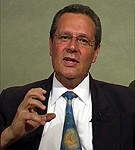 Evian Gordon, CEO, Brain Resource. Dr Evian Gordon, PhD, MBBCh, is the Chairman and Chief Executive Officer of Brain Resource. Dr Gordon has over 20 years of experience in human brain research. He was the founding director of the Brain Dynamics Centre at Westmead Hospital and a senior lecturer in the Department of Psychological Medicine at the University of Sydney. He edited the first book on “Integrative Neuroscience” and has more than 160 publications.
Evian Gordon, CEO, Brain Resource. Dr Evian Gordon, PhD, MBBCh, is the Chairman and Chief Executive Officer of Brain Resource. Dr Gordon has over 20 years of experience in human brain research. He was the founding director of the Brain Dynamics Centre at Westmead Hospital and a senior lecturer in the Department of Psychological Medicine at the University of Sydney. He edited the first book on “Integrative Neuroscience” and has more than 160 publications. Misha Pavel, Ph.D., Biomedical Engineering Division Head, Oregon Health
Misha Pavel, Ph.D., Biomedical Engineering Division Head, Oregon Health 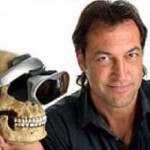 Albert “Skip” Rizzo, Co-Director VR Psych Lab at USC’s School of Gerontology. Dr. Rizzo is a Research Scientist at the University of Southern California Institute for Creative Technologies and has a faculty appointment with the USC School of Gerontology. Dr. Rizzo conducts research on the design, development and evaluation of Virtual Reality systems targeting the areas of clinical assessment, treatment and rehabilitation. His cognitive work has addressed the use of VR applications to test and train attention, memory, visuospatial abilities and executive function. He received his Ph.D. in Clinical Psychology from the State University of New York at Binghamton.
Albert “Skip” Rizzo, Co-Director VR Psych Lab at USC’s School of Gerontology. Dr. Rizzo is a Research Scientist at the University of Southern California Institute for Creative Technologies and has a faculty appointment with the USC School of Gerontology. Dr. Rizzo conducts research on the design, development and evaluation of Virtual Reality systems targeting the areas of clinical assessment, treatment and rehabilitation. His cognitive work has addressed the use of VR applications to test and train attention, memory, visuospatial abilities and executive function. He received his Ph.D. in Clinical Psychology from the State University of New York at Binghamton.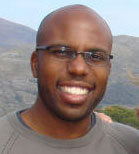 Muki Hansteen-Izora, Senior Design Researcher and Strategist with Intel’s Digital Health Group. Muki is also the Intel lead and co-PI for the Technology Research for Independent Living (TRIL) Centre’s Cognitive Function research strand, which is investigating how interactive media and gaming technologies can support cognition in older populations. Prior to joining Intel, Muki served as a lead researcher at Philips Research Labs. He holds a degree in Cultural Anthropology from the University of California at Santa Cruz, and completed his graduate training in Learning, Design, and Technology at Stanford University.
Muki Hansteen-Izora, Senior Design Researcher and Strategist with Intel’s Digital Health Group. Muki is also the Intel lead and co-PI for the Technology Research for Independent Living (TRIL) Centre’s Cognitive Function research strand, which is investigating how interactive media and gaming technologies can support cognition in older populations. Prior to joining Intel, Muki served as a lead researcher at Philips Research Labs. He holds a degree in Cultural Anthropology from the University of California at Santa Cruz, and completed his graduate training in Learning, Design, and Technology at Stanford University. Margaret Morris, Senior Researcher in Intel’s Digital Health Group. Margaret studies the ways that emerging technologies can enhance mental and physical wellbeing. She conducts ethnographic research to identify needs and works with engineers to develop and evaluate exploratory prototypes. Prior to joining Intel in 2002, she studied technology adoption in Sapient’s Experience Modelling group. Margie completed her Ph.D. in Clinical Psychology with a minor in Behavioural Neuroscience at the University of New Mexico, her clinical internship at the San Francisco VA Medical Centre, and her postdoctoral fellowship at Stanford University. She has a B.A. in English from Haverford College.
Margaret Morris, Senior Researcher in Intel’s Digital Health Group. Margaret studies the ways that emerging technologies can enhance mental and physical wellbeing. She conducts ethnographic research to identify needs and works with engineers to develop and evaluate exploratory prototypes. Prior to joining Intel in 2002, she studied technology adoption in Sapient’s Experience Modelling group. Margie completed her Ph.D. in Clinical Psychology with a minor in Behavioural Neuroscience at the University of New Mexico, her clinical internship at the San Francisco VA Medical Centre, and her postdoctoral fellowship at Stanford University. She has a B.A. in English from Haverford College.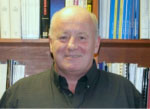 Keith Wesnes, Practice Leader, United BioSource Corporation. In 1986 Professor Wesnes founded Cognitive Drug Research (acquired in 2009 by United BioSource) to offer this system as a service in clinical trials. Professor Wesnes has published over 270 peer-reviewed research articles as well as more than 20 chapters and literature reviews. He holds Professorships at the Human Cognitive Neuroscience Unit at Northumbria University, Newcastle, UK and the Brain Sciences Institute at Swinburne University, Melbourne, Australia. Professor Wesnes was made Fellow of the British Psychological Society in 1989 and Fellow of the Royal Statistical Society in 1983. He earned his BSc from Reading University in 1973 with a First Class Honors in experimental psychology.
Keith Wesnes, Practice Leader, United BioSource Corporation. In 1986 Professor Wesnes founded Cognitive Drug Research (acquired in 2009 by United BioSource) to offer this system as a service in clinical trials. Professor Wesnes has published over 270 peer-reviewed research articles as well as more than 20 chapters and literature reviews. He holds Professorships at the Human Cognitive Neuroscience Unit at Northumbria University, Newcastle, UK and the Brain Sciences Institute at Swinburne University, Melbourne, Australia. Professor Wesnes was made Fellow of the British Psychological Society in 1989 and Fellow of the Royal Statistical Society in 1983. He earned his BSc from Reading University in 1973 with a First Class Honors in experimental psychology.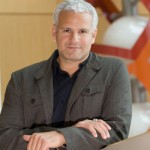 Adam Gazzaley, Director of the Neuroscience Imaging Center at the University of California, San Francisco. Dr. Gazzaley is a faculty member in the Neurology, Physiology and Psychiatry departments, and principal investigator of a cognitive neuroscience laboratory that conducts research on the neural mechanisms of attention and memory. A major focus of his research has been to expand our understanding of the alterations in the aging brain that lead to cognitive decline. His most recent studies explore how we can preserve and improve attention and memory as we get older. He has received many awards and honors for his research, including the 1997 Cortical Scholar Award, Pfizer/AFAR Innovations in Aging Award and the Ellison Foundation New Scholar Award in Aging.
Adam Gazzaley, Director of the Neuroscience Imaging Center at the University of California, San Francisco. Dr. Gazzaley is a faculty member in the Neurology, Physiology and Psychiatry departments, and principal investigator of a cognitive neuroscience laboratory that conducts research on the neural mechanisms of attention and memory. A major focus of his research has been to expand our understanding of the alterations in the aging brain that lead to cognitive decline. His most recent studies explore how we can preserve and improve attention and memory as we get older. He has received many awards and honors for his research, including the 1997 Cortical Scholar Award, Pfizer/AFAR Innovations in Aging Award and the Ellison Foundation New Scholar Award in Aging. Michel Noir, CEO, Scientific Brain Training/ HappyNeuron. Dr. Noir received his Ph.D. in Educational Science and post graduate diploma in Cognitive Psychology from the University of Lyon, France. He received his Graduate Diploma, Advanced Graduate Diploma, and Master’s in Public Law from Paris Law Faculty. He also holds an Advanced Graduate Diploma in Political Science.. Mr. Noir has authored over 15 books on a variety of educational and brain training topics and games.
Michel Noir, CEO, Scientific Brain Training/ HappyNeuron. Dr. Noir received his Ph.D. in Educational Science and post graduate diploma in Cognitive Psychology from the University of Lyon, France. He received his Graduate Diploma, Advanced Graduate Diploma, and Master’s in Public Law from Paris Law Faculty. He also holds an Advanced Graduate Diploma in Political Science.. Mr. Noir has authored over 15 books on a variety of educational and brain training topics and games. Dr. Laurence Hirshberg directs the NeuroDevelopment Center and serves on the faculty of the Department of Psychiatry and Human Behavior of the Brown University Medical School as Clinical Assistant Professor. The NeuroDevelopment Center is one of the 20 research sites worldwide participating in the largest study of neurophysiological markers for depression. Dr. Hirshberg is a licensed clinical psychologist and certified in EEG biofeedback by the Biofeedback Certification Institute of America, and recently served as Guest Editor and contributor to a special issue of Child and Adolescent Psychiatric Clinics of North America devoted to emerging interventions in applied neuroscience, including neurofeedback and other brain based interventions.
Dr. Laurence Hirshberg directs the NeuroDevelopment Center and serves on the faculty of the Department of Psychiatry and Human Behavior of the Brown University Medical School as Clinical Assistant Professor. The NeuroDevelopment Center is one of the 20 research sites worldwide participating in the largest study of neurophysiological markers for depression. Dr. Hirshberg is a licensed clinical psychologist and certified in EEG biofeedback by the Biofeedback Certification Institute of America, and recently served as Guest Editor and contributor to a special issue of Child and Adolescent Psychiatric Clinics of North America devoted to emerging interventions in applied neuroscience, including neurofeedback and other brain based interventions.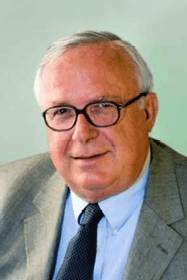 Michael Merzenich, Emeritus Professor, UCSF. For more than three decades, Dr. Merzenich has been a leading pioneer in brain plasticity research. In the late 1980s, Dr. Merzenich was on the team that invented the cochlear implant, now distributed by Advanced Bionics. In 1996, Dr. Merzenich was the founding CEO of Scientific Learning Corporation (Nasdaq: SCIL), and in 2004 became co-founder and Chief Scientific Officer of Posit Science. Dr. Merzenich has published more than 200 articles, received numerous awards and prizes, and been granted more than 50 patents for his work. His work was featured on the PBS specials “The Brain Fitness Program” and “Brain Fitness 2: Sight and Sound.” Dr. Merzenich earned his BS degree at the University of Portland and his PhD at Johns Hopkins. He retired from his long career as Francis A. Sooy Professor and Co-Director of the Keck Center for Integrative Neuroscience at the University of California at San Francisco in 2007. He was elected to the National Academy of Sciences in 1999 and will be inaugurated into the Institute of Medicine this year.
Michael Merzenich, Emeritus Professor, UCSF. For more than three decades, Dr. Merzenich has been a leading pioneer in brain plasticity research. In the late 1980s, Dr. Merzenich was on the team that invented the cochlear implant, now distributed by Advanced Bionics. In 1996, Dr. Merzenich was the founding CEO of Scientific Learning Corporation (Nasdaq: SCIL), and in 2004 became co-founder and Chief Scientific Officer of Posit Science. Dr. Merzenich has published more than 200 articles, received numerous awards and prizes, and been granted more than 50 patents for his work. His work was featured on the PBS specials “The Brain Fitness Program” and “Brain Fitness 2: Sight and Sound.” Dr. Merzenich earned his BS degree at the University of Portland and his PhD at Johns Hopkins. He retired from his long career as Francis A. Sooy Professor and Co-Director of the Keck Center for Integrative Neuroscience at the University of California at San Francisco in 2007. He was elected to the National Academy of Sciences in 1999 and will be inaugurated into the Institute of Medicine this year. Torkel Klingberg, Professor Cognitive Neuroscience, Karolinska Institute. Dr. Klingberg is a professor of cognitive neuroscience at the Stockholm Brain Institute, which is part of Sweden’s Karolinska Institute.In 2001, Klingberg founded Cogmed to develop and produce working memory training programs based on his breakthrough research demonstrating that the working memory can be improved through training. Klingberg has gained recognition in the scientific community and the international media. He has received distinctions from the International Neuropsychological Association and has been named “Future Research Leader” by the Swedish Foundation for Strategic Research. In 2006, he was awarded the Philip’s Nordic Prize for outstanding research in the field of Neuropsychiatry. Klingberg also holds a research position at the Royal Swedish Academy of Sciences.
Torkel Klingberg, Professor Cognitive Neuroscience, Karolinska Institute. Dr. Klingberg is a professor of cognitive neuroscience at the Stockholm Brain Institute, which is part of Sweden’s Karolinska Institute.In 2001, Klingberg founded Cogmed to develop and produce working memory training programs based on his breakthrough research demonstrating that the working memory can be improved through training. Klingberg has gained recognition in the scientific community and the international media. He has received distinctions from the International Neuropsychological Association and has been named “Future Research Leader” by the Swedish Foundation for Strategic Research. In 2006, he was awarded the Philip’s Nordic Prize for outstanding research in the field of Neuropsychiatry. Klingberg also holds a research position at the Royal Swedish Academy of Sciences.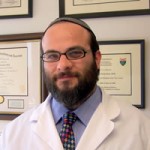 Joshua Steinerman, Asst. Professor, Albert Einstein College of Medicine – Montefiore Medical Center. Educated and trained at Harvard, Yale, Columbia, and the State University of New York, Dr. Steinerman is a behavioral neurologist and neuropsychiatrist who combines patient care with clinical research in brain aging and cognition. Dr. Steinerman co-directs the Einstein-Montefiore Center for Healthy Brain Aging and is the scientific founder of ProGevity Neuroscience.
Joshua Steinerman, Asst. Professor, Albert Einstein College of Medicine – Montefiore Medical Center. Educated and trained at Harvard, Yale, Columbia, and the State University of New York, Dr. Steinerman is a behavioral neurologist and neuropsychiatrist who combines patient care with clinical research in brain aging and cognition. Dr. Steinerman co-directs the Einstein-Montefiore Center for Healthy Brain Aging and is the scientific founder of ProGevity Neuroscience.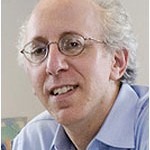 Yaakov Stern, Cognitive Neuroscience Division Leader, Columbia University. Dr. Stern directs the Cognitive Neuroscience Division of the Sergievsky Center and is Director of Neuropsychology for the Memory Disorders Clinic at the New York State Psychiatric Institute. He also directs the post-doctoral training program Neuropsychology and Cognition in Aging, and is a Professor of Clinical Neuropsychology in the Departments of Neurology, Psychiatry, and Psychology, as well as the in Sergievsky Center and the Taub Institute for the Research on Alzheimer’s Disease and the Aging Brain, at Columbia University College of Physicians and Surgeons.
Yaakov Stern, Cognitive Neuroscience Division Leader, Columbia University. Dr. Stern directs the Cognitive Neuroscience Division of the Sergievsky Center and is Director of Neuropsychology for the Memory Disorders Clinic at the New York State Psychiatric Institute. He also directs the post-doctoral training program Neuropsychology and Cognition in Aging, and is a Professor of Clinical Neuropsychology in the Departments of Neurology, Psychiatry, and Psychology, as well as the in Sergievsky Center and the Taub Institute for the Research on Alzheimer’s Disease and the Aging Brain, at Columbia University College of Physicians and Surgeons. Kenneth Kosik, Co-Director, UC Santa Barbara Neuroscience Research Institute. Dr. Kosik received his M.D. degree in 1976 from the Medical College of Pennsylvania and completed a neurology residency from Tufts New England Medical Center where he served as chief resident in 1979. From 1980 until 2005 he held various appointments at the Harvard Medical School where he became Professor of Neurology and Neuroscience in 1996. In the fall of 2004 he assumed the co-directorship of the Neuroscience Research Institute and the Harriman Chair in the Department of Molecular, Cellular and Developmental Biology at the University of California Santa Barbara. He has received multiple awards, including a Whitaker Health Sciences Award from Massachusetts Institute of Technology, the Derek Denny-Brown Neurological Scholar Award from the American Neurological Association, the Zenith Award from the Alzheimer’s Association, and a NASA Group Achievement Award to the Neurolab Science Team.
Kenneth Kosik, Co-Director, UC Santa Barbara Neuroscience Research Institute. Dr. Kosik received his M.D. degree in 1976 from the Medical College of Pennsylvania and completed a neurology residency from Tufts New England Medical Center where he served as chief resident in 1979. From 1980 until 2005 he held various appointments at the Harvard Medical School where he became Professor of Neurology and Neuroscience in 1996. In the fall of 2004 he assumed the co-directorship of the Neuroscience Research Institute and the Harriman Chair in the Department of Molecular, Cellular and Developmental Biology at the University of California Santa Barbara. He has received multiple awards, including a Whitaker Health Sciences Award from Massachusetts Institute of Technology, the Derek Denny-Brown Neurological Scholar Award from the American Neurological Association, the Zenith Award from the Alzheimer’s Association, and a NASA Group Achievement Award to the Neurolab Science Team.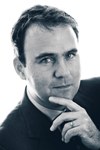 Jonas Jendi, CEO, Cogmed. Jonas Jendi joined Cogmed in 2001 as its chief executive officer. In 2007, Jendi opened Cogmed’s North American headquarters in Naperville, IL, where he is now based. Prior to Cogmed, Jendi provided strategic consulting for the Boston Consulting Group in Stockholm and Paris, and held management and consulting roles for various technology start-ups. He holds a MS from the Stockholm School of Economics.
Jonas Jendi, CEO, Cogmed. Jonas Jendi joined Cogmed in 2001 as its chief executive officer. In 2007, Jendi opened Cogmed’s North American headquarters in Naperville, IL, where he is now based. Prior to Cogmed, Jendi provided strategic consulting for the Boston Consulting Group in Stockholm and Paris, and held management and consulting roles for various technology start-ups. He holds a MS from the Stockholm School of Economics. Holly Jimison, Assoc. Professor, Oregon Health
Holly Jimison, Assoc. Professor, Oregon Health 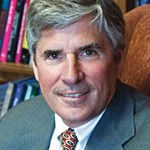 Jesse Wright, Director Depression Center, University of Louisville. Jesse H. Wright, M.D., Ph.D., is a professor in the Department of Psychiatry and Behavioral Sciences at the University of Louisville, where he also serves as associate chairman for Academic Affairs and director of the Depression Center. Additionally, he is the medical director of the Norton Psychiatric Center and a policy advisor for the Depression and Bipolar Support Alliance (DBSA). Dr. Wright is the principal author of “Good Days Ahead: The Interactive Program for Depression and Anxiety,” the first multimedia computer program for treatment of depression. Dr. Wright was the founding president of the Academy of Cognitive Therapy and is a past president of the Kentucky Psychiatric Association. He also is a fellow of the American College of Psychiatrists. He graduated from Jefferson Medical College in Philadelphia and completed his residency training in psychiatry at the University of Michigan.
Jesse Wright, Director Depression Center, University of Louisville. Jesse H. Wright, M.D., Ph.D., is a professor in the Department of Psychiatry and Behavioral Sciences at the University of Louisville, where he also serves as associate chairman for Academic Affairs and director of the Depression Center. Additionally, he is the medical director of the Norton Psychiatric Center and a policy advisor for the Depression and Bipolar Support Alliance (DBSA). Dr. Wright is the principal author of “Good Days Ahead: The Interactive Program for Depression and Anxiety,” the first multimedia computer program for treatment of depression. Dr. Wright was the founding president of the Academy of Cognitive Therapy and is a past president of the Kentucky Psychiatric Association. He also is a fellow of the American College of Psychiatrists. He graduated from Jefferson Medical College in Philadelphia and completed his residency training in psychiatry at the University of Michigan. Tim Chang, Partner, Norwest Venture Partners. Tim brings a combination of operational, technical and international business experience to Norwest Venture Partners. Tim focuses on investments in mobile, gaming, digital media, and also leads NVP’s investment practice in China and Asia-Pacific. Tim led NVP’s investments in and joined the boards of directors of ngmoco, Lumos Labs, Brite Semiconductor and 3jam. Tim spent more than five years working in Japan. He was a product manager at Gateway Inc and a development engineer for General Motors. Tim holds an MBA from Stanford Graduate School of Business, and an MS in electrical engineering/system engineering as well as a BS in electrical engineering from the University of Michigan.
Tim Chang, Partner, Norwest Venture Partners. Tim brings a combination of operational, technical and international business experience to Norwest Venture Partners. Tim focuses on investments in mobile, gaming, digital media, and also leads NVP’s investment practice in China and Asia-Pacific. Tim led NVP’s investments in and joined the boards of directors of ngmoco, Lumos Labs, Brite Semiconductor and 3jam. Tim spent more than five years working in Japan. He was a product manager at Gateway Inc and a development engineer for General Motors. Tim holds an MBA from Stanford Graduate School of Business, and an MS in electrical engineering/system engineering as well as a BS in electrical engineering from the University of Michigan. Lisa Schoonerman, Co-founder, vibrantBrains. Lisa held a variety of technical and editorial positions with the Thomson Corporation in the Legal Publishing division (now ThomsonReuters), beginning in Rochester, NY and then coming to San Francisco to work for what was then Bancroft Whitney. Lisa’s work for Thomson included a 3‑year assignment in the UK, where she was Editorial Director of the group providing content for Westlaw UK, the first international application of the Westlaw database.
Lisa Schoonerman, Co-founder, vibrantBrains. Lisa held a variety of technical and editorial positions with the Thomson Corporation in the Legal Publishing division (now ThomsonReuters), beginning in Rochester, NY and then coming to San Francisco to work for what was then Bancroft Whitney. Lisa’s work for Thomson included a 3‑year assignment in the UK, where she was Editorial Director of the group providing content for Westlaw UK, the first international application of the Westlaw database. Veronika Litinski, Director, MaRS Venture Group. Veronika Litinski coordinates the MaRS venture services programs delivered to entrepreneurs, investors and high-growth companies. She also provides advisory services to entrepreneurs and high growth companies, with a special focus on life sciences markets, specializing in corporate finance and business development. Veronika started her career as a research scientist at Lawrence Livermore Lab in Berkeley, California. Transitioning to the business world, Veronika founded a medical journal, earned her MBA (Finance) at the University of San Francisco, and worked in corporate finance with Union Bank and GATX Financial Corporation. Veronika is a member of Financial Women Association (FWA) and Financial Executives International (FEI).
Veronika Litinski, Director, MaRS Venture Group. Veronika Litinski coordinates the MaRS venture services programs delivered to entrepreneurs, investors and high-growth companies. She also provides advisory services to entrepreneurs and high growth companies, with a special focus on life sciences markets, specializing in corporate finance and business development. Veronika started her career as a research scientist at Lawrence Livermore Lab in Berkeley, California. Transitioning to the business world, Veronika founded a medical journal, earned her MBA (Finance) at the University of San Francisco, and worked in corporate finance with Union Bank and GATX Financial Corporation. Veronika is a member of Financial Women Association (FWA) and Financial Executives International (FEI). Charles Jennings, Director of the new McGovern Institute Neurotechnology (MINT) Program, MIT. Following postdoctoral studies in developmental biology at Harvard and MIT, he became an editor with the scientific journal Nature. He was the founding editor of Nature Neuroscience, widely considered a leading journal in its field. More recently, he was the first executive director of the Harvard Stem Cell Institute, and he continues to serve as an advisor to the Connecticut Stem Cell Research Program.
Charles Jennings, Director of the new McGovern Institute Neurotechnology (MINT) Program, MIT. Following postdoctoral studies in developmental biology at Harvard and MIT, he became an editor with the scientific journal Nature. He was the founding editor of Nature Neuroscience, widely considered a leading journal in its field. More recently, he was the first executive director of the Harvard Stem Cell Institute, and he continues to serve as an advisor to the Connecticut Stem Cell Research Program.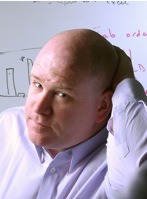 Stephen Macknik, Director of the Laboratory of Behavioral Neurophysiology, Barrow Neurological Institute. Dr. Macknik’s research and scientific outreach activities have been featured in the New York Times, The Wall Street Journal,The Chicago Tribune, The Boston Globe, NPR, and Der Spiegel, among hundreds of media stories. He is board member of Scientific American, where he has published several feature articles and for which he published a free monthly online column on the neuroscience of illusions.
Stephen Macknik, Director of the Laboratory of Behavioral Neurophysiology, Barrow Neurological Institute. Dr. Macknik’s research and scientific outreach activities have been featured in the New York Times, The Wall Street Journal,The Chicago Tribune, The Boston Globe, NPR, and Der Spiegel, among hundreds of media stories. He is board member of Scientific American, where he has published several feature articles and for which he published a free monthly online column on the neuroscience of illusions.